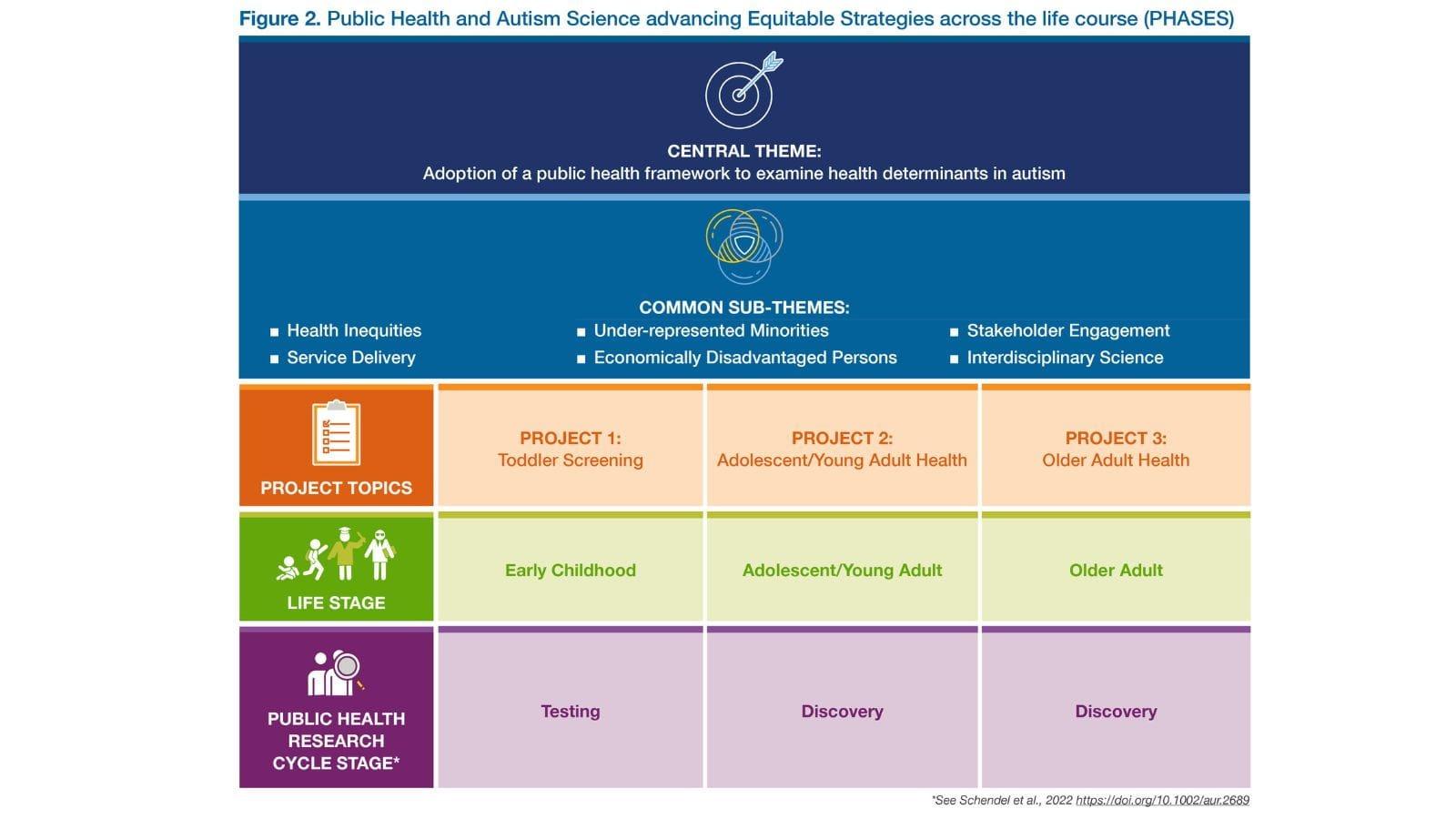The A.J. Drexel Autism Institute Awarded $10 Million for Advancing Equitable Strategies and Reducing Barriers for Autistic Individuals of All Ages

- Early-Career Hiring Remains Active but Increasingly Selective, According to Drexel’s 2026 College Hiring Outlook
- Breaking Through the Ice Ceiling at the Olympics
- Drexel University's Recent Academic Activity: Sponsored Opportunities and New Partnerships From Fall 2025
- Faculty Highlights: Recent Awards and Grants from Fall 2025

Drexel University’s A.J. Drexel Autism Institute was awarded a 5-year, $10 million Autism Centers of Excellence (ACE) award from the National Institutes of Health to understand and reduce barriers to good health and health care access for people with autism. Led by Diana Robins, PhD, director of the Autism Institute, and Diana Schendel, PhD, professor and leader of the Modifiable Autism Risk Factors research program in the Autism Institute, the project titled “Public Health and Autism Science advancing Equitable Strategies across the life course” (PHASES) will employ a public health research framework to examine health determinants, health services delivery and health inequity – especially in under-represented diverse populations – and the impact of these forces on autistic people’s health outcomes.
The researchers will study these issues in people on the autism spectrum during three key stages of the life course: early detection and diagnosis in toddlers, led by Robins; patterns of co-occurring health conditions and health services use in adolescence and young adulthood, led by Schendel; and mental and physical health in older adulthood, led by Lindsay Shea, DrPH, leader of the Policy, Analytics and Community research program in the Autism Institute.

Public Health and Autism Science advancing Equitable Strategies across the life course (PHASES)
“This year marks the 10th anniversary of the establishment of A.J. Drexel Autism Institute as the nation’s first autism spectrum disorder research center to apply a public health lens toward understanding the causes of autism and its associated challenges, and then developing more effective treatments, resources, and strategies for welcoming autistic people into society and ensuring that they have the resources and supports to live their lives with dignity and purpose,” said Drexel University President John Fry. “I can think of no greater validation or accelerant of the Autism Institute’s pioneering research than to receive this major award from the National Institutes of Health.”
“We are so proud of our colleagues in the Autism Institute. This prestigious award clearly indicates the team’s prominent national standing in autism research,” said Aleister Saunders, PhD, executive vice provost for Research and Innovation. “Their unique approach is clearly making an impact on individuals and families impacted by autism and this new award will help to extend this impact to underserved communities.”
Co-leads Robins and Schendel noted this research is novel in that it focuses on both examining services and working with underserved populations with the intent to generate actionable strategies to improve public health.
The dissemination and outreach core, co-led by Jennifer Plumb, DSW, outreach core director at the Autism Institute, and Elisabeth Sheridan, PhD, clinical core director of the Autism Institute, will facilitate engagement with diverse stakeholders, support training opportunities and expand the Autism Institute’s existing activities to emphasize two-way communication between the research team and the community.
The data core, co-led by Shea and Reneé Moore, PhD, a research professor in Dornsife School of Public Health, will ensure quality, integrity and security of big data from diverse sources including Medicaid, Medicare and electronic health records. The administrative core, led by Robins, will streamline communication and collaboration across the larger team. Overall, PHASES will address preventable adverse outcomes and promote wellbeing in autistic individuals.
Drexel is the only Philadelphia institution and one of two in Pennsylvania to receive this grant. It is also the third time Drexel has been awarded an ACE grant – making it one of only five universities to receive more than one of these awards. Past funding has established the EARLI (Early Autism Risk Longitudinal Investigation) network, a project that is still generating new information about environmental risk factors of autism today, and Connecting the Dots, which is still collecting data.
For more information, visit: https://www.nichd.nih.gov/newsroom/news/090622-NIH-awards-ACE-program.
Note on terminology: The A.J. Drexel Autism Institute intentionally uses “person with autism,” “autistic person,” and “person on the autism spectrum” interchangeably, in respect of the different opinions about language within the autistic community.
Drexel News is produced by
University Marketing and Communications.